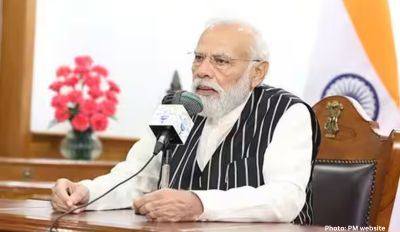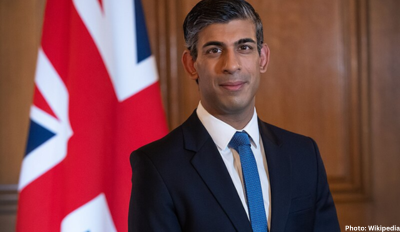Judge Amul R. Thapar, who was on President Trump’s short list for the Supreme Court, faced questions from senators on Wednesday, April 26th regarding his nomination to the 6th Circuit Court of Appeals. Thapar, who hails from Kentucky, was introduced by Senate Majority Leader Mitch McConnell, R-Ky, who praised Thapar as “a bright, fair, and dedicated man who will make a tremendous addition to the Sixth Circuit. He is a keen legal mind who applies the law fairly to all who enter his court-room.”
The Sixth Court of Appeals serves Michigan, Ohio, Kentucky, and Tennessee. Thapar currently serves on the district court for the Eastern District of Kentucky. He is the first Article III judge of South Asian descent. The American Bar Association – which does not recommend judges but does rate them – gave Thapar its highest ranking of “well qualified” on April 24. The judge has also received approbation from the South Asian Bar Association of North America, and the National Asian Pacific American Bar Association.
The Senate Judiciary Committee’s Democrats were much less charitable. Illinois Sen. Dick Durbin questioned Thapar at length about his membership in the Federalist Society, an organization the Illinois Democrat said had an outsized role in selecting the people on Trump’s short list to fill the Supreme Court vacancy.
Thapar noted that he was a member of group, which he identified as an “open-debate” society, for three or four years before he became a judge. Durbin expressed concern and said, “They like you and that’s the point I’m trying to get to.” Nebraska Sen. Ben Sasse defended the Federalist Society during his questioning of Thapar.
The People for the American Way, and The Leadership Conference on Civil and Human Rights – which will be led by Indian American civil rights activist Vanita Gupta, beginning in June – expressed “serious concerns” about the jurist’s record.
The Leadership Conference noted that Thapar had a history of controversial rulings, including a case in which he allowed a diabetic inmate to continue to be denied insulin; and sentencing three pacifists – including an 82-year-old nun – to lengthy prison terms after they broke into a nuclear power plant in Oakridge, Tennessee, and spray-painted peace slogans.
As his wife, father, mother, former law clerks and children looked on, Thapar was grilled on several issues, including controversial rulings, his alleged support of corporate and Republican interests, and his allegiance to Trump and to the Federalist Society, a conservative legal organization which has had great influence in getting conservatives appointed to judicial roles.
“I’ve always ruled fairly to the best of my ability,” responded Thapar to a question regarding his alleged allegiance to corporate interests. “I’ve ruled time and again against corporations and in support of the little guy.”
The judge cited his ruling in a 2016 case regarding a woman who was stripped of her $800 per month Social Security benefits. In that case, Thapar said that the Social Security Administration had violated the due process rights of the woman by not allowing her to challenge evidence presented against her. “When the government re-determined her right to disability payments – and categorically excluded some of her medical evidence because it had ‘reason to believe’ the evidence was fraudulent – she never got a chance to challenge that factual assertion before anyone,” wrote Thapar in his 33-page ruling, saying that the SSA had acted unconstitutionally. He also referred to a 2010 case where he ruled against Massey Energy, in support of coal miners who were suffering from hazardous conditions underground, in violation of labor safety laws.











